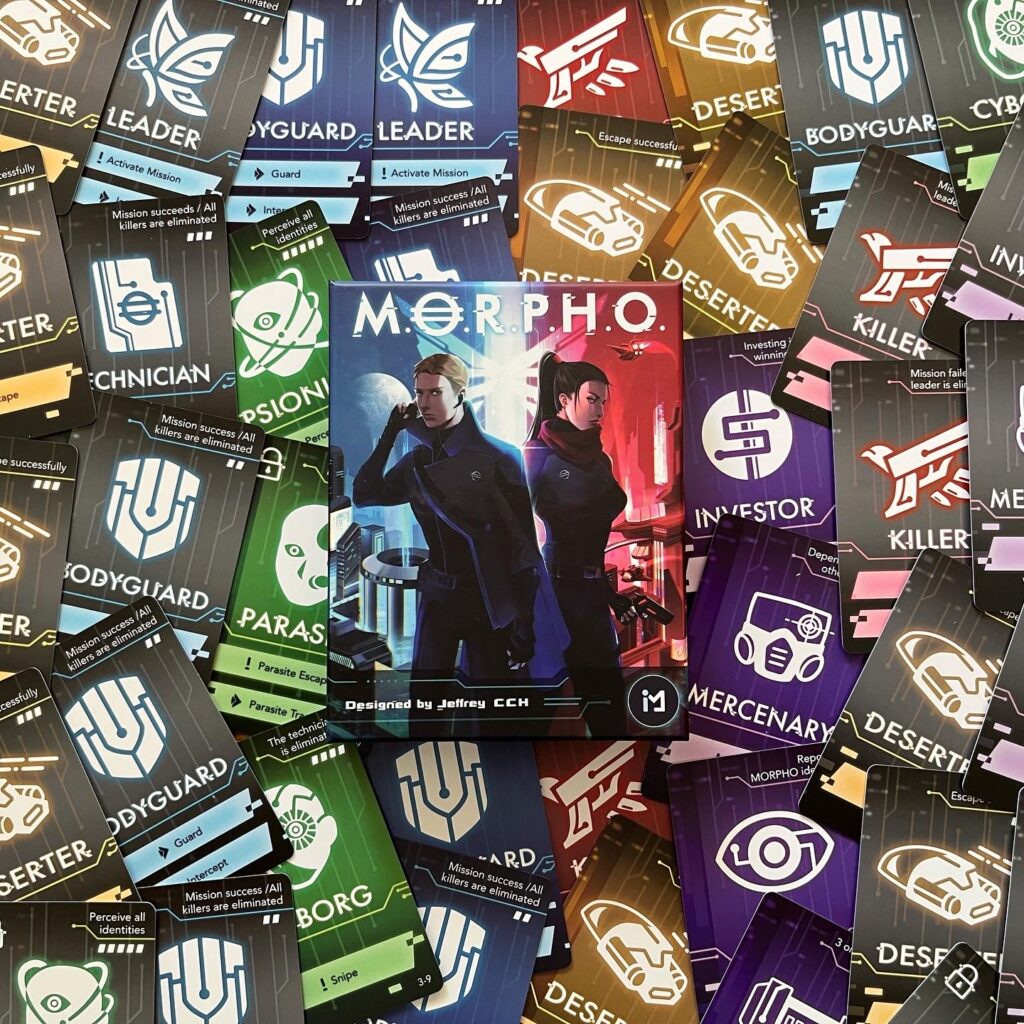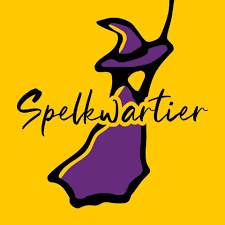In the future, an evil empire, with the “help” of some weird alien green men (working under their own secret agenda), has taken control of humanity. A small group of rebels, M.O.R.P.H.O., are fed up with these oppressors and want to take down the empire and its evil rulers once and for all. While these mighty morpho power rebels try to complete their mission, the evil empire does everything in its power to stop the group. Assassins lie in wait and have infiltrated the group, broken down rebel soldiers can no longer handle the pressure and want to desert, aliens and unknown parties put the relationships on edge. The roles are constantly reversed and allegiances turn like the tide. Can you help your faction to victory in this hidden role-playing game?

M.O.R.P.H.O. is a deduction and bluffing game with hidden roles, just like (Ultimate) Werewolf (of Miller’s Hollow). Unlike most games in this genre, you can play M.O.R.P.H.O. with a relatively small group and each round flies by at a rapid pace. M.O.R.P.H.O. can already be played with groups as little as 3 players. The standard game is played with 3 to 6 players and in this variant, each player is assigned no less than two roles, which I personally find a refreshing element. In games for 7 – 9 players each player gets dealt one role.
Each role (or associated faction) has a way to win and corresponding victory points. In the regular game, players play with the leader, a technician, assassins, bodyguards and deserters. The blue faction, consisting of the leader, bodyguards and the technician, wins if the assassins are eliminated or if the blue team manage to complete the mission wherein the leader has to identify the technician before the leader or the technician is killed by the assassins. The assassins win if the mission fails and a deserter wins if he manages to escape. Since each player is given two roles, it is possible that these roles conflict. This is all part of the game, as roles can change, requiring players to constantly change strategies to achieve their goals. When players are ready for an advanced game, they can add special unknown roles. Unknown roles are or will be added to each game, implementing the theme a bit more intensely than in the base game. For example, the investor who speculates on the victory of a certain faction.
The gameplay itself is relatively simple. When it is a player’s turn, this player may perform one of three actions: 1. take a peek at a closed role of another player (although this player may not look at adjacent roles), 2. the player may trade one of his or her roles with the card in the middle of the table, or 3. the player may activate an active ability of one of his or her roles by revealing the role. With these abilities, players can influence or even trigger the outcome of the game. Note that many roles have passive abilities that can be activated when the other player activates an active ability. Most of these passive abilities are used to counter active abilities that want to trigger winning conditions.
M.O.R.P.H.O. is a lovely short deduction game that can easily be played during short breaks, outside of your house or on the go with a smaller or mid-sized group. This makes it perfect to play with friends in a, for example, bar. Because of the many different roles, each with their own unique characteristics, the game offers enough variation without feeling unbalanced. It is great to lie to your friends, switch roles and claim victory.






